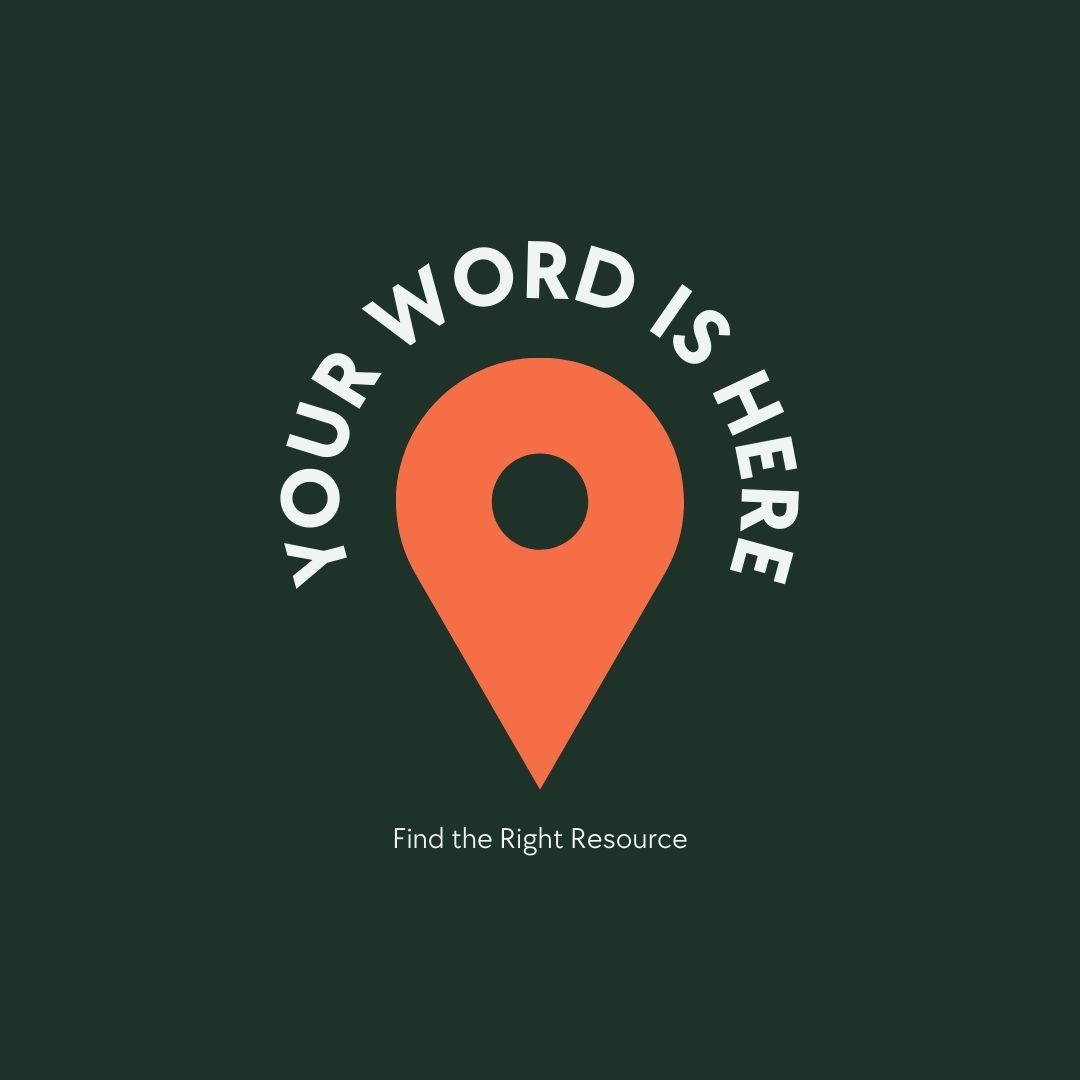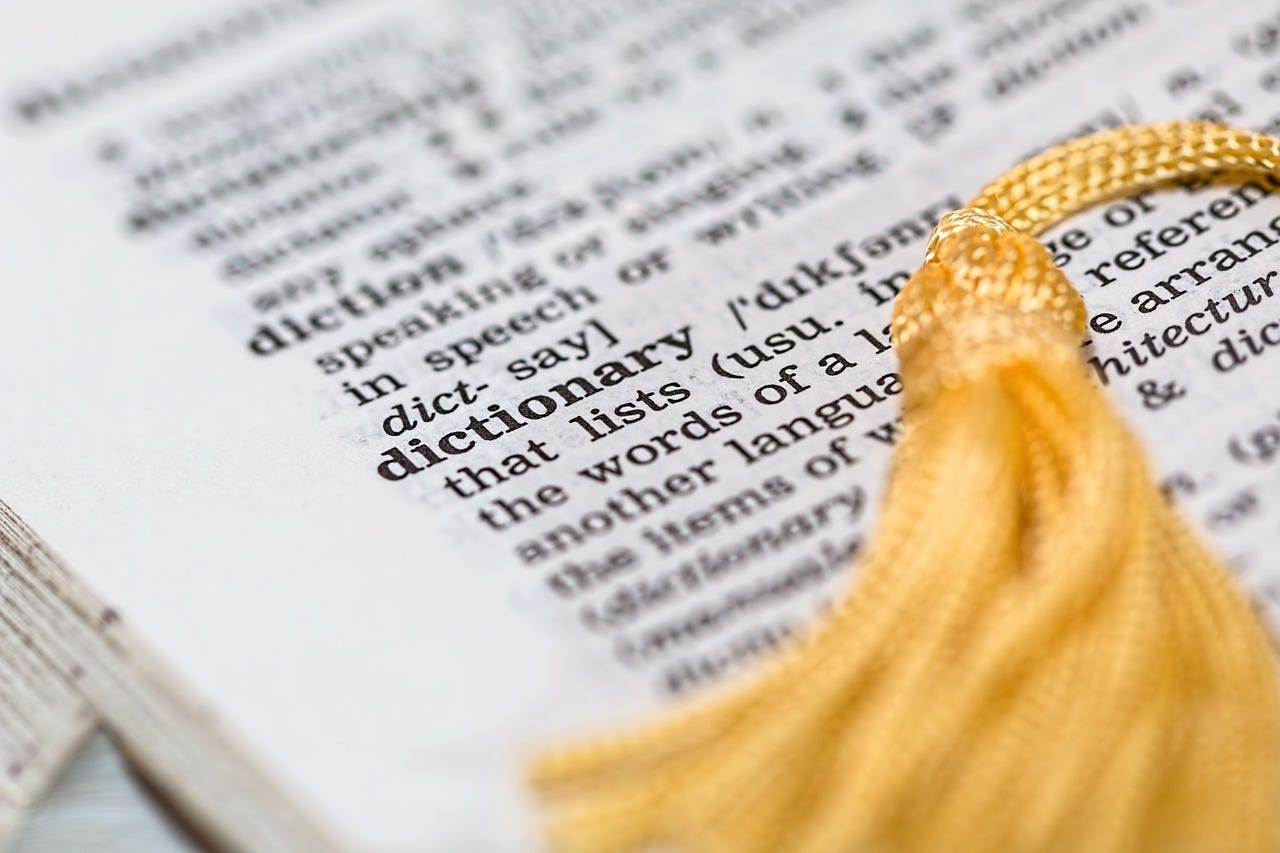Choose Your Word Adventure
Medicine, music, and marijuana. The POWER of specialized dictionaries, glossaries, thesauruses, and encylopedias.
Once upon a time, I went to editing school. I worked for a few years. Then I returned to school and earned an MFA in creative non-fiction writing. The end. Well… far from it.
Note! You 100% don’t need a writing degree to be a writer. Don’t let the idea of academics or credentials stop you from writing.
During my time in school, I researched a lot of stuff. I fact checked everything I researched. I wrote according to style guides. Along the way, I discovered resources to answer questions. I loved it and I still do.
I could fill a book with research goodies. No one wants to sift through that. Instead, read on for the following:
Interesting online and printed dictionaries
Thesaurus magic
The Delights of Dictionaries
Medicine, Music, and Marijuana
The first email I read every morning comes from Merriam-Webster’s Word of the Day.
This daily vocabulary gift replaces the word a day calendar and is so much better. Chose the online entry, video, or my favorite, the under two-minute podcast. Have some fun and make it a challenge to use the word in a sentence sometime during the day or as a writing prompt.
Online dictionaries are powerful resources. They provide word knowledge and spelling. (I have days I can’t spell my own name.) In additional to Merriam-Webster, there is also Dictionary.com. It too has a word of the day, but it’ s not as entertaining as Webster’s.
Looking to check some slang? Did you read something online that you didn’t understand? The Urban Dictionary is your answer.
You’re Special. You Need a Special Dictionary.
Writers often struggle with creating authentic dialogue for characters who work in professions outside of our own experiences. We can be caught unprepared during an expert interview when jargon or professional terms are blasted at us. As a reader, we can be immersed in a book and glean a word’s meaning from context, but not always.
Specialized dictionaries, glossaries, and encyclopedias fill in those blanks. Familiarizing yourself with a new-to-you industry or profession’s terminology is important before conducting an interview. If you’re developing characters or settings, it’ll help you develop a mindset and create an authentic voice and world.
As a science and technology writer, I’ve interviewed scores of PhDs. I take notes, make recordings, and ask questions. But while I may understand something at the moment, often when reviewing my notes, I realize I’m out of my depth. I’ll stare at a list of terms and need more information. A dictionary could eventually answer those questions, or I could search each item, but it’s often faster to reach to a specialized sore.
Here are some examples. A Medical Dictionary of terms like this one from Harvard University. Or…
For most fields, specialization, or topics, search on the <thing> plus choose either <dictionary> <glossary> <encyclopedia> <terms> to discover a list from someplace.
Try it for marijuana. In your browser of choice, search Marijuana + terms. This is what I found marijuana. While testing this method I found one for porn, but you’ll need to find that on your own. I also like this Glossary of Terms Used by Working Musicians.
As with any online search, vet the source. Make sure it’s credible.
Have you found an interesting online glossary or dictionary?
Two specialized resources I have in paperback are The Elemental Encyclopedia of Magical Creatures by John and Caitlin Matthew and The Dictionary of Nautical Literacy by Robert McKenna.
I’ve used the magical creatures book as a source for branding company names and products. I relied on the nautical literacy book to help me write a novel that partially takes place at sea.
Thesaurus Magic
image from the Visual Thesaurus
Dictionaries and glossaries are useful, but thesauruses are powerful. Writers have go-to words that show up again and again that contributes to authorial voice. I’m not saying you change your voice. I’m suggesting you develop it. A thesaurus offers nuanced synonyms and can change a non-specific word into a powerhouse.
Editing advice. Avoid the word “thing” in writing. Thing is weak and lacks specifics. Use a thesaurus and find the right word for your thought or description.
Do you use complicated and jargon-filled words? You may be losing your readers. Perhaps you repeat the same word too many times in one piece of writing, creating an annoying redundancy of repetition. (Did you catch that?) Thesaurus to the rescue.
Both Merriam-Webster and Dictionary.com have thesaurus links.
If you’re a visual thinker, try the Visual Thesaurus.
Ackerman and Puglisi for the thesaurus win!
Angela Ackerman and Becca Puglisi are the writing duo responsible for The Emotion Thesaurus and other titles such as The Conflict Thesaurus, The Negative Trait Thesaurus, and The Urban Setting Thesaurus to name a few titles in this series. They’ve created this dynamic resource to help solve the show don’t tell problem.
First drafts are often filled with characters who only smile, nod, or shed tears. The Emotion Thesaurus offers over one hundred emotional states from acceptance to worthlessness. Each entry describes the emotion, provides physical signals and behaviors to move your character beyond nods and smiles. The entries also include the mental response, long-term responses, signs the emotion is being suppressed, what may come from the emotion, and associated power verbs.
Different books in the series have different formats. Each two-page entry has details, details, details to help you understand human actions and how people act and interact in a variety of settings.
You can check out their entries at their One Stop for Writers website. The site also offers a subscription service where you can have access to all the material.
If you want a copy of one of these books, do not buy an e-book. It’s impossible to flip back and forth through the entries. While tempting due to the lower price, you'll only be frustrated.
You can find these titles and any great book you want though my affiliate link below.
I hope these resources help you find your perfect words. I’ll be back with future resource newsletters on where to find facts, maps, and more.
In the coming issues of Research for Writers and Other Curious People
Animals in Writing
Creating authentic teenager characters with Dr. Dana Dorfman
The Foodies are Coming! A series of food writing issues including a special offer from cookbook literary agency the Lisa Ekus Group
Ideas for creating a grift in your story and understanding scams









I, too, love words and the Word of the Day.
Thanks for the great article!
I love dictionaries, too! As a writer and proud word-nerd that is! But As as a professional dreamworker I am leery of one kind of dictionary and that's the Dream Dictionary. That's because each person's dream speaks a language that is custom-tailored to that individual. Other than that, I've never met a dictionary I didn't love <3